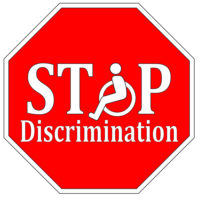DISCRIMINATION IN THE WORKPLACE – THE 3 TYPES OF CLAIMS, 7 TYPES OF WINS

You’re convinced you’ve been discriminated against at work, treated unfairly simply out of prejudice. Things have gotten to the unbearable point, and you’ve decided to file a claim. It might have been about age discrimination, racial prejudice, or a disability. It might have to do with childbirth, pregnancy or family leave rights. Whichever the reason, you need to know what choices are available for you for making a legal claim against your employer; it will be helpful to seek legal guidance from an employment attorney.
Discriminatory intent/discriminatory treatment claim
You are a member of a “protected class” of employees, and because of this (your race, color, sex, religion, national origin, or age) you were treated worse than other employees.
Were you treated differently from others in the same employment situation as you, but who are not in your protected category? Did any managers or supervisors make rude comments directed at your “type” of people, remarks about women, blacks, Muslims, Jews, gays, older people, etc.? Perhaps an employer told you that you’re near retirement and the company wants to present a more youthful image…
Disparate Impact claim
There may not have been any intent to discriminate specifically against you or even against your “protected class”, but your employer’s employment policy rules have had a disproportionately negative effect on you and perhaps on others. (Perhaps you were denied a promotion or kept from being hired as a woman because of a size or strength test).
Retaliation claim
Your employer retaliated against you –demoted you, took away benefits or privileges, or fired you, for making a complaint about discrimination or reporting a safety hazard.
Did your employer keep less qualified, non-protected employees who do the same job you had been doing? Had you been hearing other employees complain about poor treatment and discrimination on the part of the very manager or supervisor who punished you?
You’ve heard that it is often very difficult to prove that discrimination occurred, particularly in an employment at will state such as Indiana. Meanwhile, you may be wondering, if I do file a claim, what exactly do I stand to win? In other words, what are the remedies if I win my discrimination lawsuit?
There are seven types of “remedy” that a court has the power to award in an employment discrimination trial:
- Reinstatement with no loss of seniority.
- Back pay (lost earnings resulting from discrimination)
- Front pay (lost future earnings)
- Lost benefits (health/dental insurance, pension, 401k, stock options, profit-sharing)
- Emotional distress (also known as “pain and suffering”)
- Punitive damages (extra money the employer has to pay as a punishment)
- Attorney fees
The U.S. Equal Employment and Opportunity Commission explains that there are limits to the amount of compensatory and punitive damages a person can recover, depending on the size of the employer:
- For employers with 15-100 employees, the limit is $50,000.
- For employers with 101-200 employees, the limit is $100,000.
- For employers with 201-500 employees, the limit is $200,000.
- For employers with more than 500 employees, the limit is $300,000.
The laws regarding employment discrimination cases can be very complicated and difficult to understand, as legalmatch.com explains. But, if you feel certain you’ve been the victim of employment discrimination, an experienced employment attorney can:
- advise you of your rights
- help determine your likelihood of recovery
- help with the complex procedural aspects of filing a claim
- represent you in court
Many clients who first visit our Ramey & Hailey offices are there because of a co-worker whom they have defended. Now, they fear, they themselves seem to be victims of employer retaliation. Perhaps they were given a lower performance evaluation than before, despite the fact that nothing has changed in their dedication to their job. There might have been thinly veiled threats to report immigration status of a family member. Their schedule may have been changed, seemingly on purpose, to conflict with family obligations their supervisors know they have.
As employment law attorneys, at Ramey & Hailey our belief is that your employment environment is a vital part of your well-being and satisfaction in life. That, in short, is what drives us to work so aggressively to protect you from workplace discrimination!




